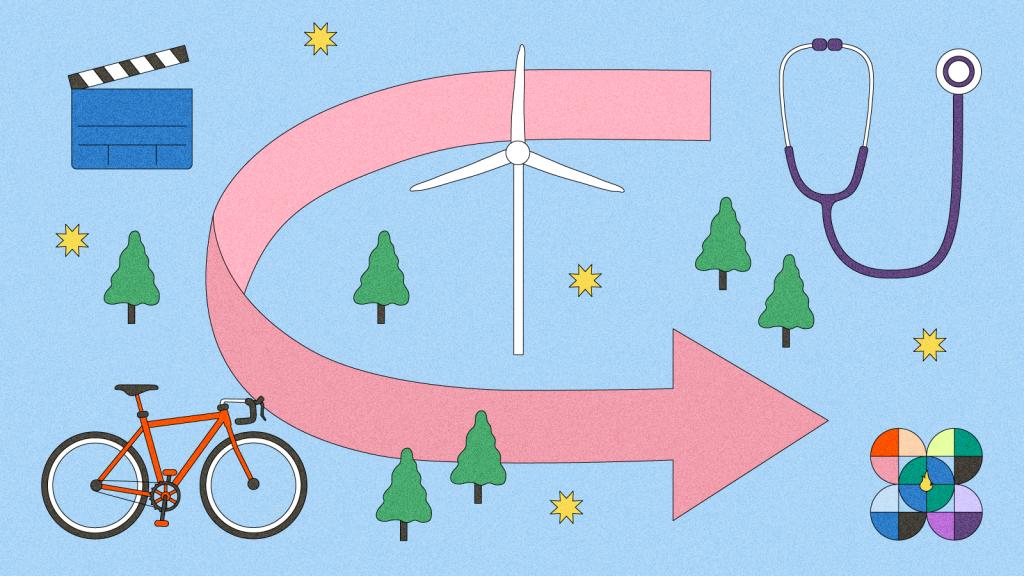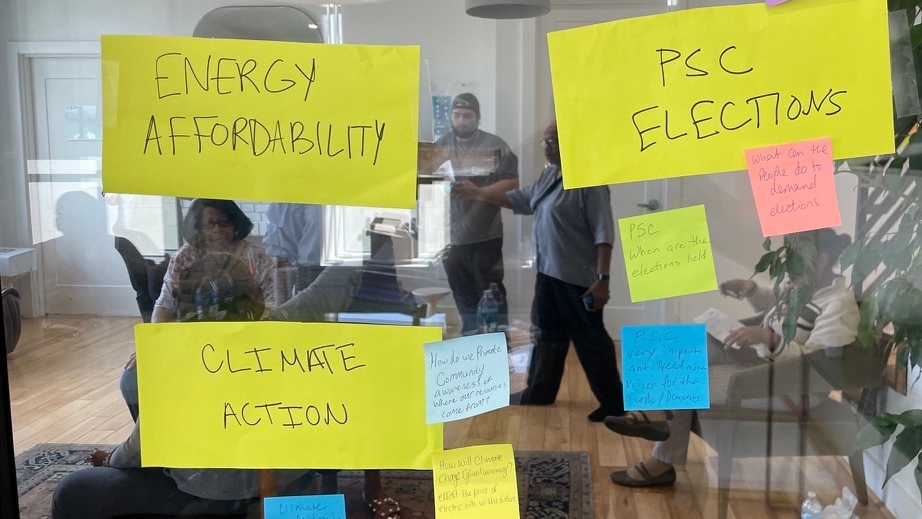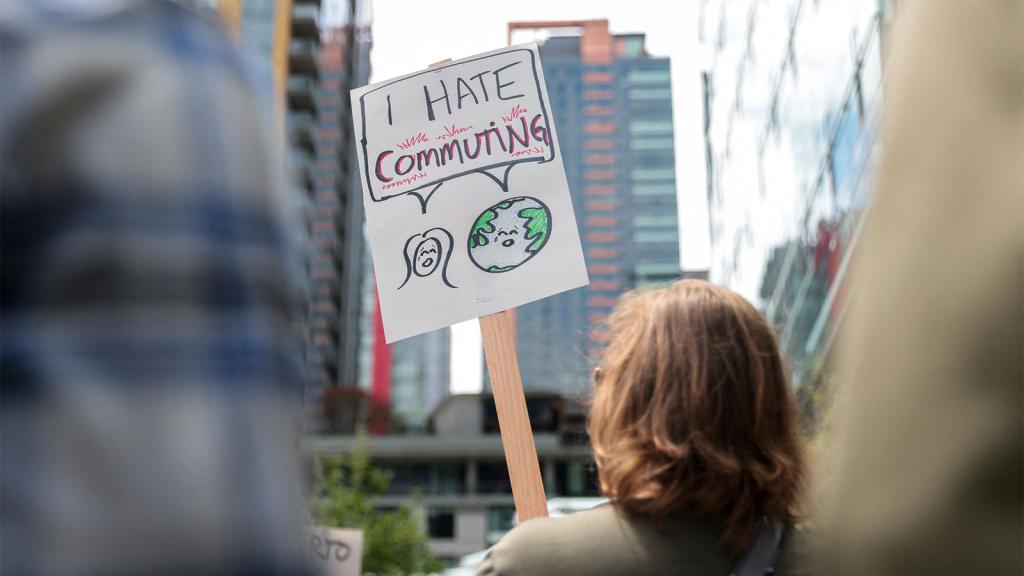In March, Grist launched a reporting and community engagement project to demystify the Georgia Public Service Commission, or PSC — the small but powerful elected board that makes critical decisions about everything from raising electric bills to developing renewable energy.
Grist hosted four community listening events in Georgia in partnership with local organizations and institutions to ensure our journalism reaches and involves residents who face major barriers to accessing information. These events were held in places that vary demographically, politically, and culturally, but all face energy affordability challenges. We offered stipends to participants to ensure they were compensated for their time; while these conversations have helped shape ideas for stories and outreach, participants will not serve as sources in resulting Grist articles.
In Bankhead, we held a listening and visioning workshop in partnership with Canopy Atlanta, a community journalism nonprofit, and Eco-Action, an Atlanta-based environmental justice nonprofit. Participants expressed interest in creating a pipeline for more people to run for the PSC and wanted stories on other elected positions that impact climate action in the state.
In Norcross, in partnership with 85 Community Development Corporation, a local nonprofit that provides economic development initiatives including mutual aid and utility assistance in Gwinnett County, we held a bilingual event for immigrants and Spanish speakers. Latino residents identified specific needs for renters, including energy efficiency and weatherization information and how costly bills affect those living in apartment buildings.
In Macon, we held a listening session at the Frank Johnson Recreation Center in partnership with Westside Neighbors United, a group that educates and informs West Macon residents about safety, environmental justice, voting, and more. Participants focused on the need for stories about the intersection of economic injustice, redlining, and pollution, as well as climate change impacts such as extreme heat on electricity bills.
And in Rome, a listening session at the Rome-Floyd County Library resulted in conversations about coal ash pollution in the region, its relationship to the PSC and its energy decisions, and ways to reach homeless and low-income residents struggling to pay their power bills or access affordable housing.
After these events, Grist is continuing deep, sustained engagement in these communities. Senior community engagement manager Lyndsey Gilpin will spearhead the launch of a paid journalism training program around the Georgia Public Service Commission so residents can develop information projects in their own communities. With community partners, she will also create and distribute printed resources, and help inform reporting with WABE.
“There is so much important work being done in Atlanta and throughout Georgia around voting rights, environmental justice, and energy affordability this year, and I’m eager for Grist to play a role in filling information gaps,” said Gilpin. “We want to learn what stories residents want and what resources they need, and offer tools and training to identify misinformation and find facts about energy policy.”
This project kicks off Grist’s new community engagement efforts to ensure its journalism reaches rural, low-wealth communities and communities of color — which disproportionately face environmental injustices and barriers to accessing consistent, accurate information — and equip people with tools to participate in the journalism process.



